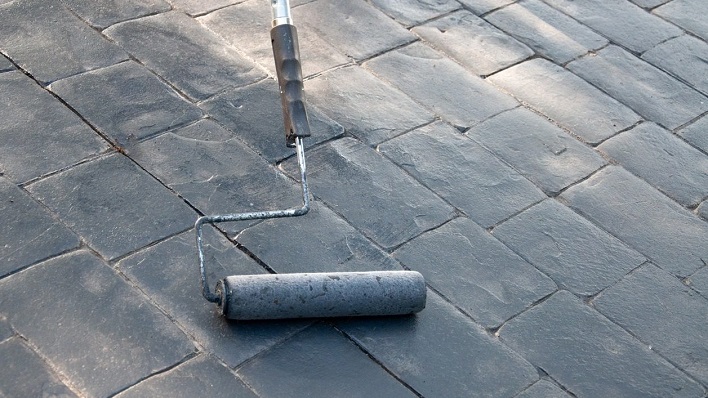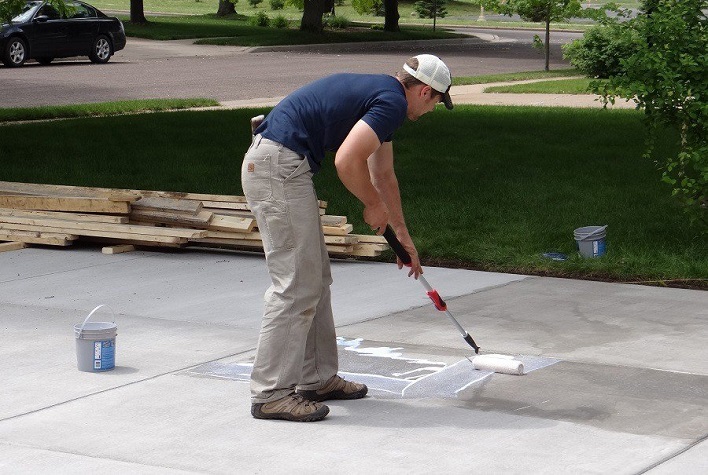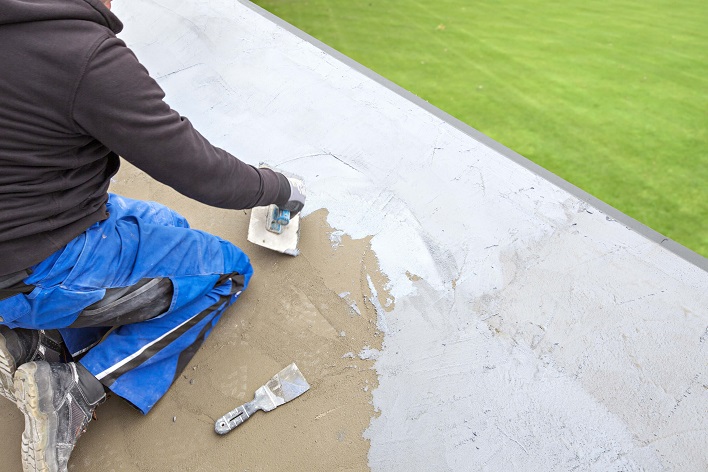 |
| Source: concretesealerreviews.com |
Literally, the building block of today's modern architectural pieces is concrete. Everything from the houses in your neighbourhood to the tallest building in the world are made of concrete. Concrete is a strong bonding material and one that can last quite a long time. But even the strongest building material needs some added protection from time to time and this type of protection are concrete sealers. A concrete sealer is able to provide protection from the weather as well as chemical damage. Concrete sealers are able to repel moisture and resist stains too. They also prevent cracks and colours from fading while making concrete last a lot longer than it already does.
Important Features to Look for in Concrete Sealers
 |
| Source: sealwithease.com |
Durability
The number one thing to look out for when buying a concrete sealer is its durability. This means how long will the sealer be able to provide protection for the concrete. During the expected lifespan of proper concrete sealer bunnings, they should also provide a high level of protection and not just last for a long time for the sake of it.
Safety
Concrete sealers themselves can be harmful especially if you want to provide a food-safe concrete surface. A lot of concrete sealers contain VOCs or volatile organic compounds. These can be dangerous for both your health and the environment too. So make sure to go for a zero VOC concrete wall sealer.
Area
The amount of sealer you'll need to get will depend on the surface area you want to protect from external factors. If a concrete sealer requires multiple coats to be layered on top of each other then you'll need to get a lot more sealer than you'd usually do.
Purpose
Since concrete is used for all kinds of things and not just making the foundation of a household you need to look for the right type of concrete sealer too. There are sealers that can provide a glossy texture and others that are able to keep the colour of the concrete safe. Because of this, there are different types of concrete sealer bunnings.
Types of Concrete Sealers
 |
| Source: enrightasphalt.com |
Acrylic
The most commonly used and preferred concrete wall sealer is known for being an affordable option and simple to apply. You can even apply acrylic sealers right after the installation of concrete, There are also some acrylic concrete sealers that are UV resistant and in addition to that, they provide great protection against de-icing salt, moisture, chemicals, and oil absorption. There are two types of acrylic concrete sealers water-based and solvent-based.
Water-based acrylic sealers are suspended in water, they don't release harmful vapours and they are more affordable too. Solvent-based acrylic concrete sealers are suspended in solvent and are mainly used for outdoor applications since they provide much better protection than water-based acrylic sealers. Solvent-based acrylic concrete sealers do not require extra preparation and give a nice wet look to the concrete too.
Penetrating
The unique ability of penetrating sealers is that it allows vapour to escape from the concrete and prevent moisture to enter at the same time. Penetrating sealers are a great option that will prevent erosion, extreme temperatures, UV rays, and stains from affecting the state of the concrete. Frictional surfaces are mainly covered with penetrating sealer and this type of sealer can be seen used over other sealers too.
Penetrating concrete sealers are available in three variations, silicone, silane, and silicate sealers. Silicone penetrating concrete sealers are a great short-term solution since this is all they can deliver – temporary protection. This requires you recoating the sealer regularly in order to keep it lasting longer. Silicate penetrating concrete sealers are known to not alter the look of a concrete surface but they provide a tough layer that last a long time. Silane penetrating sealers provide the thickest layer since they involve a thick application too – 2 to 3 coatings. This makes them the toughest.
Polyurethane
If you want a sealer that is twice as thick as an acrylic concrete sealer then go for polyurethane sealers. Polyurethane sealers offer stiff protection from chemicals and erosion and they mainly safeguard the floors of cafes, shopping malls, as well as amusement parks. This type of sealer is also abrasion resistant and offers a lot of flexibility making it ideal for use on walkways too.
Epoxy
With an epoxy concrete sealer, you get abrasion-resistant later that is excellent at repelling water. Epoxy concrete sealers are made so that they make for a glossy surface and they can be coupled together with an anti-slip aggregate. Metallic flooring and flake as well as surfaces where you would prepare food can all be covered with an epoxy concrete sealer as it is a safe option.
Polyaspartic
With polyaspartic concrete sealers, you have all the flexibility you can get from a concrete sealer. They are the newest addition to the family and allow you to apply them safely at temperatures between -34 °C and 60 °C. Polyaspartic sealers are known to cure quickly too as it only takes anywhere between 5 and 120 minutes depending on the size of the area you have covered in this sealer.
0 comments :
Post a Comment